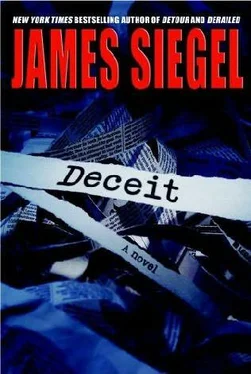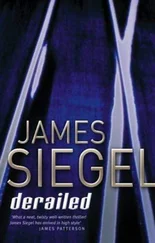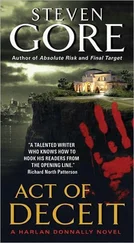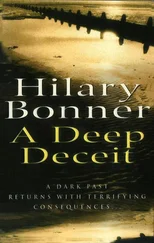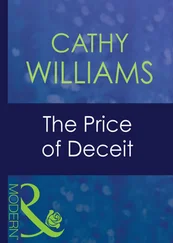I won’t tell you her name. It doesn’t matter. We went to the Days Inn instead of my rented home because I didn’t want her husband showing up at my front door. We went there three times, and it was satisfying only in the most rudimentary definition of the term. Like eating cooked-to-death food when you’re hungry.
When she called my cell after our third liaison, I didn’t call her back. I discovered a message on my phone from her a week later.
So this is it, huh? Have a nice life.
If you were going to end an affair, those words were as good as any.
Now I was awash in Karas, which is to say pretty much at sea.
I left them there to meet Anna.
Somewhere between salad and entree, between talking and flirting, between 8 o’clock and 9 o’clock, Anna mentioned John Wren.
That she knew him.
We’d somehow ended up on the subject of journalism again. Not just talking, either. I was pretty much proselytizing, though it might’ve been the Chianti doing most of the self-righteous babbling. I sounded the way I used to, when I was first starting out and consumed with the fever. A divinity student discussing his faith. Hadn’t I worked for the acknowledged bible of the industry?
Slowly, sin by sin, I’d managed to subvert the very reason for a newspaper’s existence, to turn truth inside out. Like one of those Soviet moles from the thirties who burrowed their way into the heart of the British democracy. And just like Philby and company had spilled innocent blood-so did I.
I have skirted the particulars with you; I have played coy.
The resulting carnage from my exposure and dismissal included one brilliant, dedicated, and generally worshiped editor who did nothing much but believe in me.
He went down with the ship.
Or with the rat.
I’d be pecking away at a story and I’d feel him just behind me, like a divine presence keeping tabs. He had that kind of status, had earned a special kind of reputation, even at a newspaper where journalistic luminaries were the norm.
For some reason, he took an interest in me, saw something there worth cultivating. Maybe he simply knew a fatherless boy when he saw one. He invited me for drinks one night, and when it went okay, when I didn’t bore him with a fusillade of mostly fawning questions, he invited me again. After a while we began having midnight heart-to-hearts over smelly bratwurst sandwiches in his office. We took ambling walks in Bryant Park when he felt like stretching his legs. When he’d do the rounds, I’d sense him there over my shoulder and find myself flushing, trying to will the keys to conjure up something sharp, incisive, and brilliant. Sometimes they even obliged.
It didn’t matter.
He had a habit of holding back enough praise to make you thirsty for more. What you wrote was mostly not bad, okay , or simply workmanlike . You were supposed to write for your readers-that great mass of news-hungry souls thirsting for truth.
I wrote for him .
I had a readership of one. I needed to turn okay into great .
It was irony itself that creating a story about a dead National Guardsman named Lowell Beaumont finally did the trick.
Of course, there’s a problem with finally getting what you’ve been thirsting for. Once praised, you need to feel it again, to have all that love and approval poured over you like champagne in the championship-starved 2004 Red Sox clubhouse.
I kept it up for longer than should’ve been possible.
I kept it up until it wasn’t possible.
Until I accompanied a certain reporter for drinks, and it all blew up.
During the course of one week, this editor, this friend , went from glorified ombudsman to vilified incompetent. It was followed weeks later by his sudden retirement .
He should’ve known , they claimed- they mostly being all the lesser lights he’d eclipsed on the way up. He should’ve been on top of things . He should’ve been doing his job .
His public desecration was only mildly less brutal than mine, his fall ten times greater.
Of everything I managed to ruin-and I was pretty much a one-man wrecking crew, trashing my career, my marriage, my reputation-destroying him is the thing I’m most shamed by, the worm that continually gnaws at me, that I occasionally try to drown through serial shots of tequila.
Sometimes it makes me dial the number of a faded country house in Putnam County and recite soundless words of contrition.
Hello, I say, it’s me. I’m sorry.
I can picture him there, holding that old-style black receiver in his hand, his bifocals sloped down over his prodigious nose, and I swallow the words down, ingest them whole, and they slide back into my gut and make me sick.
But not tonight.
No.
Tonight I was Carl Woodward , a hybrid between journalistic fervor and rampant horniness. Wine had loosened my tongue, all right; I was up on a soapbox with no intention of coming down. I was showing off.
“We may be in the democracy-exporting business-I mean that seems to be our only foreign policy these days, our crusade -but who protects democracy in a democracy? Those nine geriatrics on the Supreme Court? What protects the USA today is USA Today . Scary, huh? I’m not kidding. Like it or not, democracy’s in the sweaty little hands of the working press. Even if we don’t really know it. Even if we don’t really want it. I’m using we loosely here. Because truth always gets the first bullet.”
Truth -blithely using the one word in the English language I was least familiar with.
I was half-listening to myself, wondering if I sounded like a dangerous madman or, just as bad, a bore. But Anna seemed to be listening with semirapt attention. She seemed to like this me, this superhero of truth, justice, and the American way.
Then she said: “Why did you need a break?”
“Huh?”
“You said you came out here because you needed a break. What from ? It sounds like you loved it-your work. Being on important stories. Why did you bury yourself out here? I don’t mean bury -I mean…”
I should’ve been more careful.
I’d started the night talking about things un related to journalism, hadn’t I? The New York Yankees, rattlesnakes, Caddyshack . Somehow, without quite realizing it, I’d navigated My Dinner with Anna back into dangerous waters.
“I had a problem at my last job.”
“Oh? What kind of problem?”
“Ethics, sort of.”
“Ethics, sort of,” she repeated. “Something you want to talk about or something you want to pretend I didn’t ask you about?”
“Something I want to pretend you didn’t ask me about.” It’s possible to become suddenly and shockingly sober-my purple haze had disappeared like protective netting blown off by an ill wind.
“Fine. Ethics sounds kind of interesting, though. Even a little dirty.”
“It was. But not in the way you mean it,” I said.
“Oh. Well, whatever it was, I’m sorry. I mean, you obviously adored being a reporter-you’re still a reporter, you know what I mean…”
“I made things up.”
There.
Sooner or later it was bound to come out. Sooner or later, she’d mention my name to one of her friends or acquaintances and they’d tell her how familiar that name sounded-that if they didn’t know any better they’d say it sounded like that reporter guy who nearly took down a newspaper. The one who wrote about things that never happened.
The liar.
“Tom Valle,” she said, as if sounding out a foreign language. “Oh shit .”
I tried to glean what I could from her expression-those few seconds when pure shock left her unguarded. Was it simple embarrassment I saw there? Disgust? Pity?
Читать дальше
